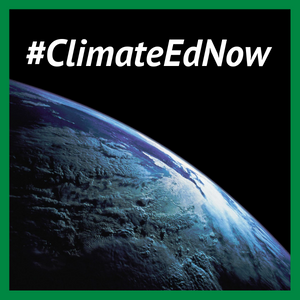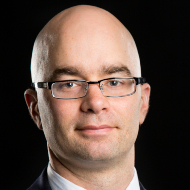 Climate scientists are a nerdy group of people; we love to carefully comb through data to better understand our planet. We also love to share our findings with our colleagues. We like to challenge each other, embracing good ideas and discarding the bad. We also are working hard to become better climate teachers. Climate scientists around the world are spending more and more effort to teach the general public about the Earth’s climate, how it is changing, and what we can do to help.
Climate scientists are a nerdy group of people; we love to carefully comb through data to better understand our planet. We also love to share our findings with our colleagues. We like to challenge each other, embracing good ideas and discarding the bad. We also are working hard to become better climate teachers. Climate scientists around the world are spending more and more effort to teach the general public about the Earth’s climate, how it is changing, and what we can do to help.
Every scientist that I know initially got into the field because they wanted to understand how nature works. Scientists share a deep sense of awe when we uncover new physical processes. There is something magical about finding a deep understanding about the universe. But with any subject, it is important to apply our knowledge to make the world a better place. Climate science gives us an excellent opportunity to use our understanding to both inspire awe and improve the world.
But if we want to use our science to improve the world, we have to convince our fellow humans to join with us, to pull in a common direction, to preserve this world for future generations, and to understand what is at stake. And for this endeavor, scientists need to engage in outreach. We need to explain, in an accessible and interesting way, how the climate affects humans and society, how we are changing the climate, and what we can do about it.
I personally take this need very seriously. I, and many of my colleagues, work hard to find ways to share our findings with the general public. We also listen to people and try to understand their perspectives. At the same time, we owe it to our audiences to be candid and honest, to tell it like it is, without equivocation.
While this is all fine and good, scientists are humans too (this fact may surprise people). We have the same anxieties and fears, hopes and desires, as everyone else. You have probably heard that one of the most common fears among people is the fear of public speaking. I assure you that many scientists share that same fear. And the fear is compounded because all too often, radical elements of society really give scientists a tough time. Whenever I appear in the media, I expect to get a few crank calls or emails. As I have gotten older, these cranks don’t bother me so much. But for a younger, less established scientist, things are different.

